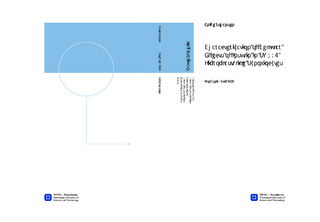| dc.description.abstract | A Western diet is characterized by several components, but the main traits are a substantial consumption of red meats, refined carbohydrates and saturated fatty acids. Poor dietary choices and a low level of physical activity can quickly lead to lifestyle diseases like obesity and metabolic syndrome. It has previously been shown that the macronutrient composition of the diet affects the low-grade systemic inflammation in obese men. Both metabolic syndrome and obesity is linked to hyperinsulinemia and insulin resistance. Insulin signals through the insulin receptor (IR), which subsequently leads to many cellular responses including the activation of nuclear factor-κB (NF- κB) and induction of pro-inflammatory mediator production. Increasing body mass index has been linked to increasing disease activity scores (DAS28) for Rheumatoid Arthritis (RA) patients. RA is an autoimmune disease of the synovial membrane of joints, which becomes a hyperplastic, invasive tissue teeming with immunocompetent cells. This will eventually lead to excessive bone loss and chronic inflammation of the synovial membrane, a condition called synovitis. The effect of chronic elevated levels of insulin on disease activity of RA is not yet known. Here, we investigate the potential of insulin to activate cytosolic phospholipase A2α (cPLA2α), which has been shown to be a key regulator of inflammation in RA, in a cell model for synovitis (SW982). In this master s thesis we also investigate a potential role for insulin in regulating proliferation and gene expression in SW982. More specifically, the time-dependent regulation of the genes insulin receptor (IR), insulin-like growth factor 1 receptor (IGF1R), c-Myc, c-Fos and interleukin 6 (IL-6) was investigated. Detection of IR and IGF1R expression by real time quantitative polymerase chain reaction (RT-qPCR) in SW982 synoviocytes, validated for the first time that these cells express the respective receptors and that they are potentially susceptible to insulin signaling.The activity of cPLA2α in response to insulin was evaluated using a radioactive release assay in pre-labeled SW982 cells, which measures the activity of cPLA2α by measuring the amount of arachidonic acid (AA) released from the cells. These tests showed that insulin did not increase the release of AA. However, this test did reveal a trend of decreased release of oleic acid (OA) in response to insulin. These results suggest a PLA2 independent pathway for insulin signaling. Also, a pro-inflammatory role of insulin mediated through the hormone sensitive lipase (HSL) is speculated upon based on these results.MTT viability assay was used to evaluate the effect of insulin on the metabolic activity of cultured SW982s. We found that insulin increases the metabolic activity by ~50% in a time, confluency and dose dependent manner. However, these results were not validated as increased proliferation by flow cytometry. We speculate upon an activation of protein kinase B (PKB) by insulin, which signals increased survival of SW982 cells.By RT-qPCR we show that insulin downregulates IR expression, and a similar trend is observed for IGF1R. Insulin induced no change in c-Myc expression, and induced a downregulation of c-fos after 12 hours. Further, insulin induced a time-dependent trend of increase in IL-6 gene expression. Insulin also induced variation in the expression of the previously accepted reference gene 18S.More tests have to be conducted in order to validate/discard the hypotheses proposed in this study. Including the possible pro-inflammatory actions of insulin in synovial cells and other tissue, mediated through inhibition of HSL. The potential for insulin to induce hyper proliferation and increased survival of synovial cells through activation of PKB, and the potential for insulin to induce expression proliferative and inflammatory genes. | nb_NO |

